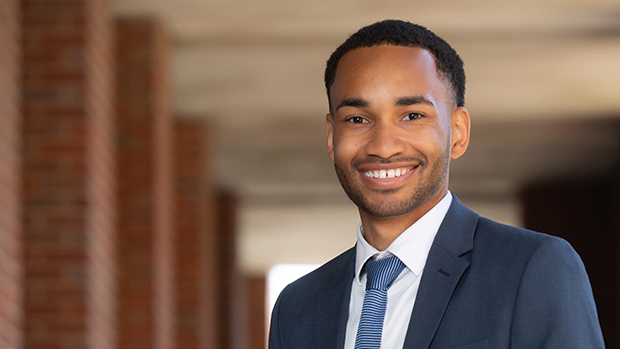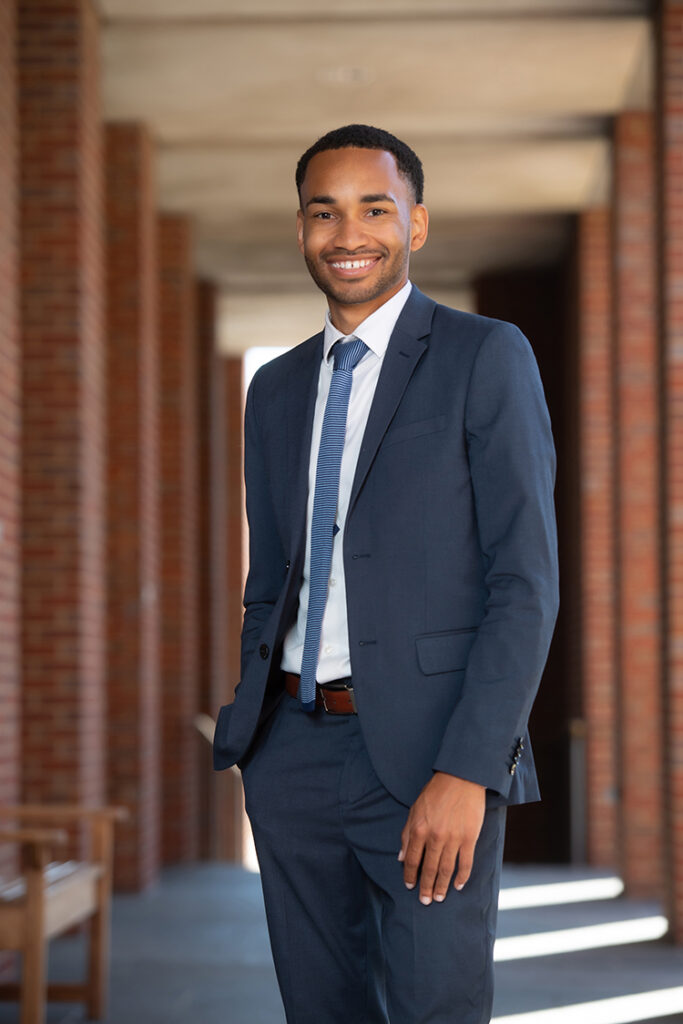
UM graduate aims to create more inclusive environment for all students and employees
Joshua Quinn Tucker, a four-time graduate of the University of Mississippi, returns to campus this month as the School of Law‘s inaugural assistant dean of diversity, equity, and inclusion.
Following a strategic plan for increasing DEI efforts in the school, Dean Susan Duncan began a search for the new position last fall. Tucker, who holds both a doctoral degree in higher education and a Juris Doctor from Ole Miss, has shown his dedication to diversity throughout his time in school and in his professional career, Duncan said.
“He is very passionate about DEI issues,” Duncan said. “You could tell just from his past work how much he cared about it. He’s our own graduate, so he understands the university and Mississippi and has spearheaded diversity efforts here.
“I thought, for being an inaugural position, someone is going to have to mold it. It’s going to be a challenge, and he’s going to be up to that challenge.”
Tucker, who worked in the university’s Office of Admissions and Division of Student Affairs as a student and whose doctoral dissertation concerned Black students and their barriers to entering law school, said he is ready to meet that challenge.
“When we think about diversity, the first things we think of are those things we see, like our race or gender,” Tucker said. “There are so many things that make us different, whether it is being a first-generation student or their sexual orientation or socioeconomic or disability status.
“I want to dispel that notion, that diversity is only about race and ethnicity, and create an inclusive environment for all.”
Tucker earned dual bachelor’s degrees in political science and business administration in 2017 before completing law school in 2020 and then earning a doctorate from the School of Education in 2022.
A first-generation student, Tucker said his experience and education have enabled him to see potential challenges and opportunities for DEI in higher education. He plans to begin his new position by listening.
“Instead of coming in with changes, I’m in the process of scheduling meetings with different departments in the law school and seeing how I can serve as a resource to them,” he said. “I tell people all the time: DEI work is hard work, but challenging work most often leads to the greatest rewards, not only to the person carrying out the work, but to those affected by it.”
Duncan said the prominence of the new position – which reports to the dean – shows that the law school is serious about improving education for all students.
“It’s important that if you’re going to do a DEI strategic plan or say DEI is of value, that you actually put your money where your mouth is,” she said. “This is us showing our community how committed we are.
“It’s not just window dressing. We really want this person to be an integral part of our operations.”
EJ Edney, the university’s assistant vice chancellor for diversity and inclusion, said the new role will help the School of Law ask, “Who is getting the benefits of what we provide? Who is experiencing the fullness of what we provide?”
“You can’t ask those questions without asking who isn’t,” Edney said. “Josh has, throughout his career, demonstrated a willingness, a capacity, a skill in seeing the opportunities to serve people better and more fully.
“He cares deeply about this place, about this school specifically. He’s one of those folks who fell in love with the profession.”
Tucker’s lived experience and high level of education make him more than qualified to excel in the role, Edney said.
“Josh is no imposter; he is built for this moment, for this opportunity,” he said.
Tucker said he plans to make it clear that his position is not just for students, but for everyone who works or studies in the School of Law.
“I’m aware of these barriers because I am a first-generation college student from a low-income family, and I know what it is like to be Black at Ole Miss,” Tucker said. “I want to create an inclusive environment for all of the stakeholders who make the law school what it is.”
By Clara Turnage




